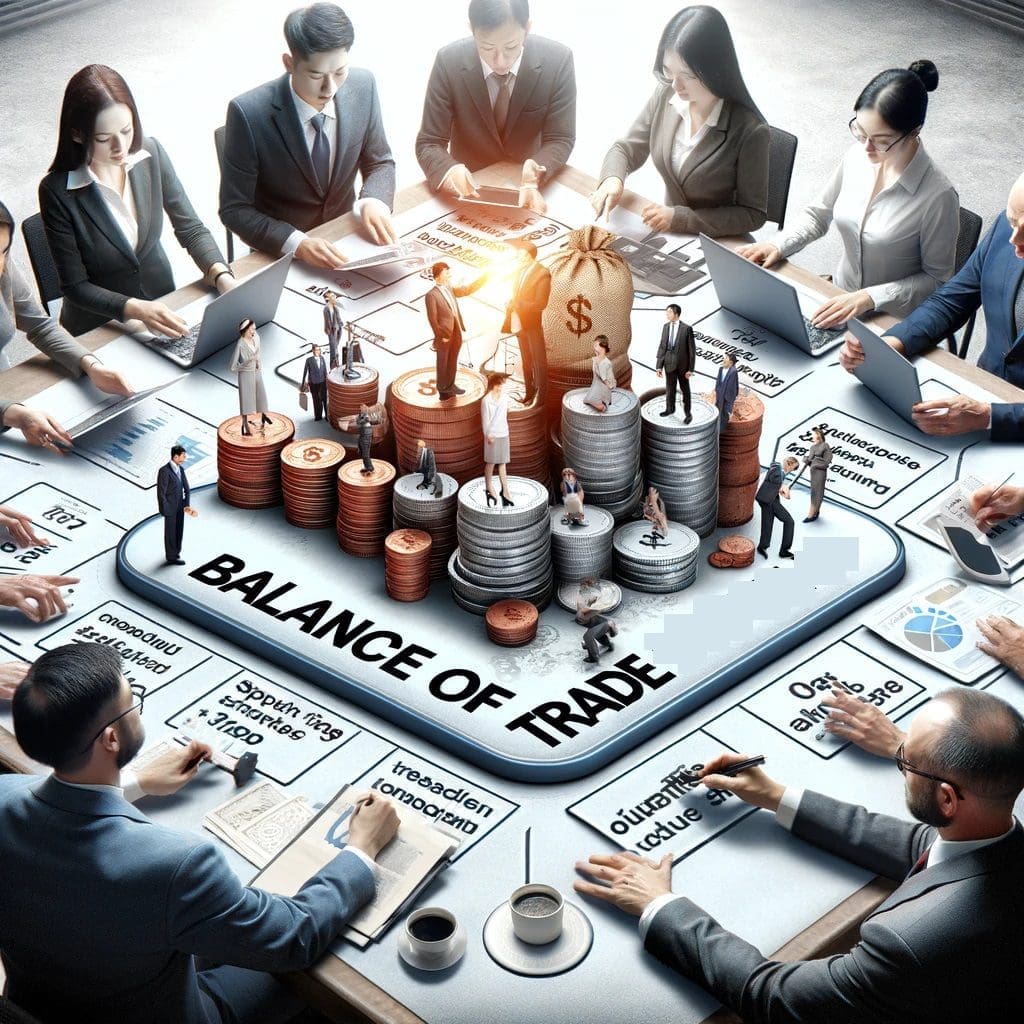Why Are Trade Surpluses Important for Economic Growth?
Understanding the Balance of Trade Surplus in Global Economics
In the realm of international trade, the concept of a Balance of Trade Surplus holds significant importance. It occurs when a country’s exports exceed its imports, leading to a positive trade balance. This economic phenomenon is not just a numerical value in a nation’s financial reports; it reflects deeper economic dynamics and policy orientations.
Calculation and Significance of Trade Surplus The Balance of Trade is calculated by subtracting the value of a country’s imports from its exports. When this calculation yields a positive number, it indicates a trade surplus. Such a surplus suggests that a nation is a net exporter, sending more goods and services to other countries than it imports. This condition can lead to an influx of foreign currency, bolstering the nation’s economic standing.
Economic Implications of a Trade Surplus A trade surplus often signals a strong manufacturing sector, as it indicates that a country produces enough goods not only for domestic consumption but also for export. This surplus can lead to increased employment, higher production rates, and overall economic growth. However, it’s essential to note that a trade surplus is not universally beneficial. The economic context and long-term sustainability are critical factors in evaluating its impact.
Global Trade Dynamics and Trade Surplus Different countries experience trade surpluses for various reasons. For instance, nations with abundant natural resources or technological advancements might export more due to global demand for their commodities or innovations. Conversely, countries with a focus on consuming imported goods and services might experience trade deficits.
Trade Policies and Their Influence Government policies significantly impact a nation’s trade balance. Tariffs, quotas, and trade agreements are tools used to regulate the flow of goods and services across borders. These policies can either encourage a trade surplus by promoting exports or discourage it by facilitating imports.
The Debate over Trade Surplus Merits Economists and policymakers often debate the merits of a trade surplus. While some argue that it reflects economic health and competitiveness, others caution against potential downsides like reliance on foreign markets or neglect of domestic consumer needs.
Case Studies: Nations with Trade Surplus Countries like Germany and China have consistently shown trade surpluses. Germany’s strong manufacturing base, particularly in automobiles and machinery, contributes to its surplus. China’s surplus, on the other hand, is driven by its role as a global manufacturing hub, coupled with government policies favoring exports.
Challenges and Risks of Sustaining a Trade Surplus Maintaining a trade surplus over the long term poses challenges. It can lead to trade tensions, as countries with trade deficits may implement protectionist policies. Additionally, a continuous surplus might mask underlying economic issues like under-consumption or insufficient domestic investment.
The Interplay Between Trade Surplus and National Economies The dynamics of a trade surplus extend beyond the immediate financial gains. For a country enjoying a trade surplus, the influx of foreign currency can lead to a stronger national currency. This can have mixed effects; a stronger currency makes imports cheaper and exports more expensive, potentially balancing the trade surplus in the long term.
Influence of Trade Surplus on Global Trade Relations A consistent trade surplus can significantly impact a nation’s relations with its trading partners. Countries facing trade deficits with surplus nations may impose trade barriers or renegotiate trade agreements. This can lead to a shift in global trade patterns, affecting international economic relations and the global market.
Sustainability and Economic Health While a trade surplus can be a sign of economic strength, it’s crucial to consider its sustainability. An over-reliance on exports can make an economy vulnerable to global market fluctuations. Moreover, a focus on exports might lead to neglect of the domestic market, impacting the overall economic balance.
Macroeconomic Factors and Trade Surplus Understanding the implications of a trade surplus requires a macroeconomic perspective. Factors such as government spending, investment rates, and currency exchange rates play a crucial role in shaping a country’s trade balance. For instance, a nation with high government spending might experience a trade deficit, while one with robust investment rates might enjoy a trade surplus.
Global Trends and Trade Surplus Global economic trends also influence trade surpluses. In periods of global economic growth, trade volumes typically increase, potentially impacting trade balances. Conversely, during economic downturns, a decrease in global trade can affect countries differently, depending on their reliance on exports.
Favorable vs. Unfavorable Trade Balances While a trade surplus is often viewed favorably, implying more money entering the economy than leaving, it’s not universally advantageous. Similarly, a trade deficit is not inherently unfavorable. The key is in understanding the underlying economic conditions and policies driving these trade balances.
Case Studies: Analyzing Trade Surplus in Various Countries Examining countries like Germany and China, which have maintained trade surpluses, offers insights into how different economic models and policies can lead to such outcomes. Conversely, analyzing countries with trade deficits can provide a contrasting perspective on trade balances.
Conclusion: A Multifaceted View of Trade Surplus In conclusion, the Balance of Trade Surplus is a complex and multifaceted economic concept. Its impact on a nation’s economy, currency valuation, and international trade relations makes it a critical topic for economists, policymakers, and business leaders. A nuanced understanding of the trade surplus and its broader economic context is essential for anyone involved in international trade and economics.
References:
- Wall Street Prep’s guide to understanding the Trade Surplus concept
- Corporate Finance Institute’s explanation of the Balance of Trade
- Britannica’s definition and impact of the Balance of Trade















